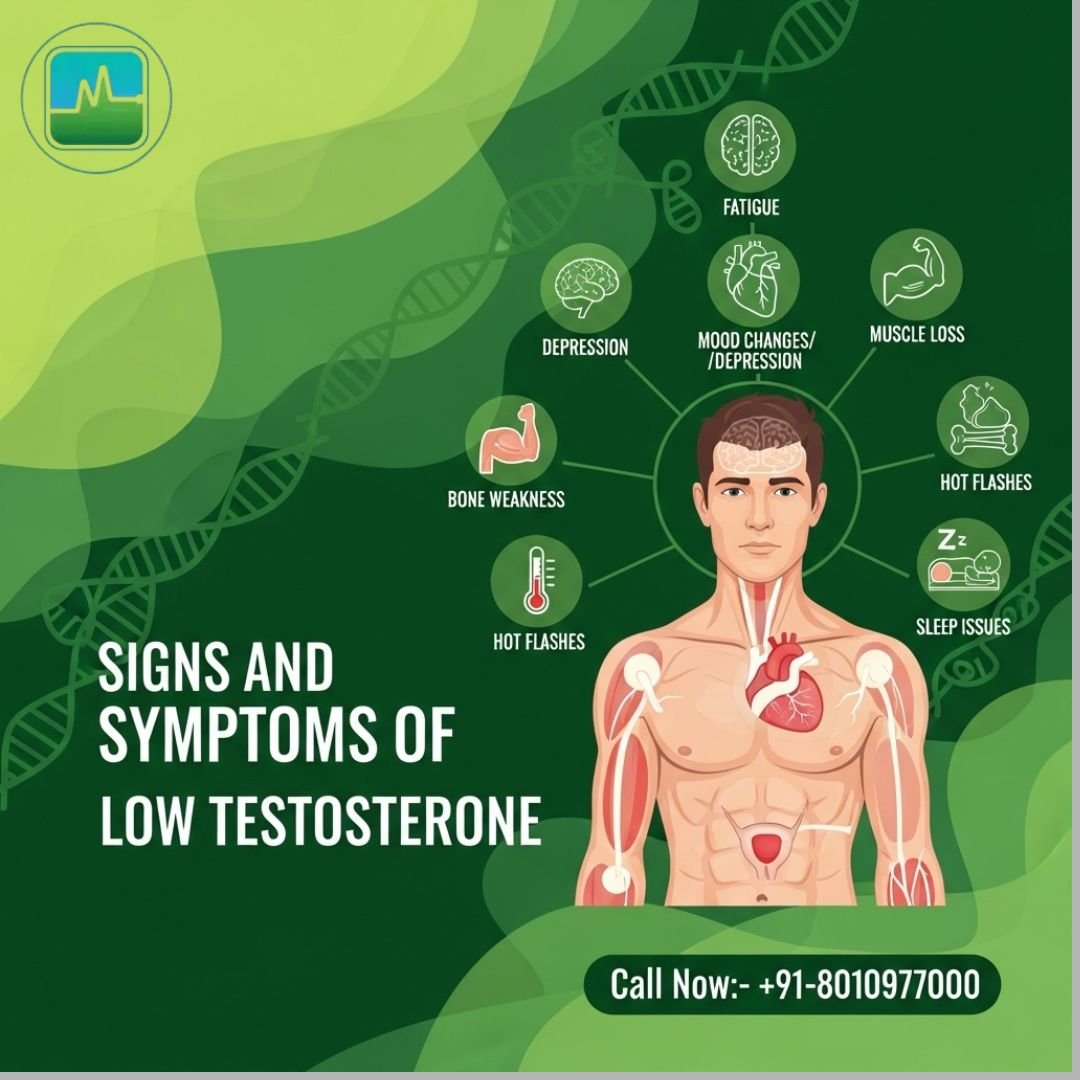Infertility is not just a problem for women – around 30-40% of infertility cases are caused by men.
While it is common for men to be unaware of infertility problems, it is important to recognize the warning signs of infertility in men early.
By identifying the symptoms and getting timely treatment, you can improve your chances of a successful pregnancy.
Low Sperm Count or Poor Sperm Quality
Warning Sign:
A low sperm count or poor sperm quality (such as low motility or abnormal shape) can make it difficult for sperm to fertilize an egg. This is one of the most significant indicators of male infertility.
Treatment:
A semen analysis is the first step in diagnosing this issue. If a low sperm count is found, your doctor may recommend lifestyle changes, hormone treatments, or medications. In some cases, assisted reproductive technologies (ART) like IVF may be needed.
Erectile Dysfunction (ED)
Warning Sign:
Frequent trouble achieving or maintaining an erection may be a sign of underlying infertility. ED could be related to hormonal imbalances, vascular issues, or stress, all of which can affect fertility.
Treatment:
Consult a urologist or fertility specialist. Medications like Viagra, lifestyle changes, or therapies like testosterone replacement or psychological counseling may help.
Read More- Does Your Partner Suffer from Erectile Dysfunction?
Pain or Swelling in the Testicles
Warning Sign:
Pain, swelling, or discomfort in the testicles can signal conditions like varicocele (enlarged veins in the scrotum), infections, or even trauma to the reproductive organs, all of which can lower sperm production.
Treatment:
An examination by a specialist can help diagnose the issue. Surgery may be necessary to treat varicocele, or antibiotics may be prescribed for infections.
Unexplained Fatigue or Lack of Energy
Warning Sign:
Chronic fatigue or low energy levels, especially if unexplained, may indicate underlying issues like hormonal imbalances (low testosterone) or metabolic disorders that affect fertility.
Treatment:
A doctor may recommend hormone testing or a comprehensive health check to diagnose any imbalances or conditions contributing to fatigue. Lifestyle changes and hormone therapy may help restore energy levels.
Reduced Sexual Desire (Libido)
Warning Sign:
A noticeable decrease in sexual desire could be linked to low testosterone levels, stress, or other hormonal imbalances—all of which can influence fertility.
Treatment:
Consult an endocrinologist for hormone testing. Treatment options include testosterone replacement therapy or medications that can help improve sexual function and fertility.
Changes in Hair Growth or Patterns
Warning Sign:
Changes in body or facial hair (such as thinning hair or excessive body hair) can be signs of hormonal imbalance, particularly low testosterone or genetic conditions like Klinefelter syndrome that can affect fertility.
Treatment:
Hormonal testing is recommended. Based on the results, testosterone replacement therapy or lifestyle changes may be suggested to improve both fertility and overall health.
History of Genetic Disorders
Warning Sign:
Genetic conditions like cystic fibrosis, Klinefelter syndrome, or Y-chromosome deletions can directly affect sperm production and male fertility.
Treatment:
Genetic counseling and testing are essential. If a genetic cause is found, ART methods like ICSI (Intracytoplasmic Sperm Injection) can be used to achieve pregnancy.
Difficulty with Ejaculation
Warning Sign:
Difficulty ejaculating or retrograde ejaculation (semen entering the bladder instead of exiting through the penis) can be linked to conditions such as diabetes, nerve damage, or blockages in the reproductive tract.
Treatment:
A fertility expert can determine the cause. Medications, surgery to clear blockages or lifestyle changes may help.
Excessive Exposure to Heat
Warning Sign:
Frequent exposure to high temperatures—like sitting in hot tubs, saunas, or wearing tight clothing—can increase the temperature of the testicles, which negatively affects sperm production.
Treatment:
Wear loose-fitting clothing and avoid prolonged exposure to heat sources. If needed, a specialist might suggest additional measures to improve sperm health.
Low Sperm Motility or Morphology
Warning Sign:
Sperm motility refers to how well sperm move and morphology refers to their shape. If sperm have poor motility or abnormal morphology, it may be difficult for them to reach and fertilize an egg.
Treatment:
A semen analysis can confirm this issue. Treatments may include medications, lifestyle changes, and, in some cases, ART techniques like IVF combined with ICSI.
Causes of Male Infertility
Male infertility can be caused by a range of factors, including:
- Hormonal imbalances (low testosterone, thyroid issues)
- Structural problems (varicocele, blockages in the reproductive tract)
- Genetic disorders (cystic fibrosis, Klinefelter syndrome)
- Lifestyle factors (smoking, alcohol, excessive heat)
- Age-related decline in sperm quality
- Chronic health conditions (diabetes, obesity)
Treatment for Male Infertility
Treatment for male infertility depends on the underlying cause. Common treatment options include:
- Medications to address hormonal imbalances (e.g., Clomiphene, gonadotropins)
- Surgical interventions for varicocele, blockages, or other structural issues
- Lifestyle changes like quitting smoking, losing weight, and reducing alcohol intake
Male Infertility Solutions
Early diagnosis and intervention are crucial to improving fertility. If you recognize any of these warning signs, it is important to seek medical advice from a fertility specialist.
Male infertility solutions are available, and many men have successfully overcome fertility challenges with the right treatment plan.
Conclusion
Recognizing the warning signs of infertility in men early is the key to improving your chances of conceiving.
If you experience any of these symptoms, don’t hesitate to seek help from a fertility specialist.
With the right diagnosis and treatment, male infertility can often be managed, allowing you to start or expand your family.
Whether through lifestyle changes, medical treatments, or assisted reproduction, there are solutions to male infertility that can help you achieve your goal of becoming a parent.
Remember: Early intervention is key to successfully managing male infertility.











Leave a Reply